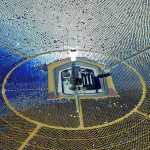How much of life do we want to sacrifice at the altar of security? If it keeps us safer, do we want to live in a world where human beings never congregate? Do we want to wear masks in public all the time? Do we want to be medically examined every time we travel, if that will save some number of lives a year? Are we willing to accept the medicalization of life in general, handing over final sovereignty over our bodies to medical authorities (as selected by political ones)? Do we want every event to be a virtual event? How much are we willing to live in fear?
Covid-19 will eventually subside, but the threat of infectious disease is permanent. Our response to it sets a course for the future. Public life, communal life, the life of shared physicality has been dwindling over several generations. Instead of shopping at stores, we get things delivered to our homes. Instead of packs of kids playing outside, we have play dates and digital adventures. Instead of the public square, we have the online forum. Do we want to continue to insulate ourselves still further from each other and the world?
It is not hard to imagine, especially if social distancing is successful, that Covid-19 persists beyond the 18 months we are being told to expect for it to run its course. It is not hard to imagine that new viruses will emerge during that time. It is not hard to imagine that emergency measures will become normal (so as to forestall the possibility of another outbreak), just as the state of emergency declared after 9/11 is still in effect today. It is not hard to imagine that (as we are being told), reinfection is possible, so that the disease will never run its course. That means that the temporary changes in our way of life may become permanent.
Read more: The Coronation, Charles Eisenstein.








